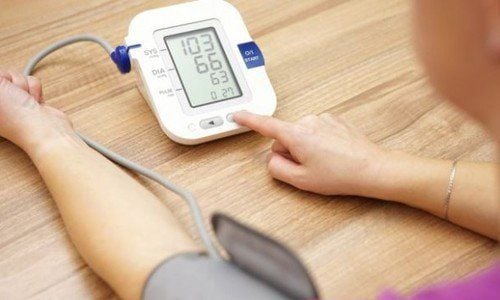Omega 3 is one of the essential dietary supplements that you should add to your body as humans cannot synthesize Omega 3 on their own. However, supplementing Omega 3 must be done correctly to achieve good results and avoid its side effects.
1. What is Omega 3 and its uses?
Omega 3 is an essential polyunsaturated fatty acid for the body. Everyone needs to add Omega 3 because the human body cannot synthesize it. Omega 3 primarily consists of three types: EPA, DHA, and DPA. So, what are the benefits of taking Omega 3? It offers several health benefits and helps prevent various conditions, such as:
- Prevents cardiovascular disease such as stroke and heart attack, and reduces the formation of atherosclerotic plaque. It also helps treat rheumatoid arthritis and supports the management of depression.
- Blood Pressure: Omega 3 is beneficial for patients with high blood pressure.
- Prevention of Blood Clots: Omega 3 keeps platelets from clumping together, helping to prevent thrombosis.
- Reducing Liver Fat: Adequate Omega 3 intake can reduce fat in the liver and inflammation in those with non-alcoholic fatty liver disease.
- Brain Development and Vision Improvement: DHA is a crucial nutrient for developing vision and nerve function in children and is a major component of the brain and retina.
- Improving Neurological Disorders: Helps manage Alzheimer's disease and autoimmune disorders and supports treatment for lupus, rheumatoid arthritis, ulcerative colitis, Crohn’s disease, and psoriasis.
- Preventing cancer: Cancer is one of the leading causes of death worldwide. Research has shown that people who supplement with adequate doses of Omega 3 can reduce their risk of colorectal cancer by up to 55%.
- Additional Benefits: Omega 3 can also improve sleep quality, skin health, manage skin oiliness, maintain skin moisture, prevent keratin buildup in hair follicles, slow premature aging, and reduce acne.
2. Can Omega 3 be taken daily?
Omega 3 has numerous proven health benefits and can be taken daily, but it must be done within the proper dosage to avoid side effects. Specifically:
- Lower Blood Pressure: Excess Omega 3 may decrease blood pressure, leading to grave complications for those with pre-existed low blood pressure.
- Digestive Disorders: Common side effects of taking Omega 3 fish oil include digestive upset and stomach discomfort, such as acid reflux or nausea.
- Increased Blood Sugar: Excess Omega 3 may raise blood sugar levels in diabetic individuals.
- Increased Bleeding Risk: Overconsumption could lead to gum bleeding and nosebleeds.
- Stroke Risk: Too much Omega 3 can impair blood clotting and increase the risk of hemorrhagic strokes.
- Vitamin A Toxicity: Some Omega 3 supplements contain high levels of vitamin A; excessive intake can lead to toxicity, causing dizziness, nausea, joint pain, and skin irritation and may result in long-term liver damage.
- Insomnia in Those with Depression History: While moderate Omega 3 usage can enhance sleep quality, excessive amounts can lead to insomnia and anxiety in individuals with a history of depression.

3. Dosage and Proper Supplementation of Omega 3
3.1. Omega 3 Dosage
The most crucial aspect of supplementing Omega 3 is understanding how much EPA and DHA it contains to ensure adequate intake. Accordingly, depending on the amount of EPA and DHA in a dosage, a minimum of 250mg and a maximum of 3000mg of combined EPA and DHA daily is recommended. Suggested dosage is as follows:
- For healthy adults: Since the daily diet typically provides sufficient DHA, one capsule/day is often enough.
- Ages 6 - 8: Should supplement with approximately 900 mg of Omega 3 per day.
- Ages 9 - 13: Girls should take 1,000 mg per day, while boys should take 1,200 mg.
- Ages 14 - 18: Girls require 1,100 mg/day, and boys should take 1,600 mg/day.
- Adulthood (age 16 and older): Women need 1,100 mg/day, men need 1,600 mg/day; pregnant women require 1,400 mg/day, and breastfeeding women need 1,300 mg/day.
- Middle-aged and elderly individuals: Those with normal health should take 1,100 mg/day;
- Heart disease patients should take at least 1,000 mg/day
- Patients with diabetes or high blood pressure should consider 2,000 mg/day.
3.2. Proper Omega 3 Supplementation
Omega 3 is one of the essential dietary supplements that you should add to your body. However, it is important to supplement it reasonably to achieve the best results and avoid potential side effects. Here is how to supplement Omega 3 effectively:
- Take Omega 3 in the morning for optimal absorption. It is advisable to take Omega 3 after each meal, as it is absorbed the most effectively when consumed with meals containing fats. You can choose whatever time is convenient, but it's important to establish a routine for taking Omega 3 at set times to achieve optimal results.

- Adjusting the timing of your Omega 3 supplementation can help prevent some side effects, such as acid reflux. Therefore, taking Omega 3 in two smaller doses—once in the morning and once in the evening—can be an effective strategy to help prevent acid reflux and indigestion.
- Although the absorption of fish oil decreases after 2 PM, it can be beneficial for individuals who have trouble sleeping, as higher levels of Omega 3 in the blood can help you fall asleep more easily and have deeper sleep.
The Vinmec medical team recommends that you thoroughly research the amounts of EPA and DHA present, as this will help you determine the correct dosage in terms of how many capsules to take at a time.
To arrange an appointment, please call HOTLINE or make your reservation directly HERE. You may also download the MyVinmec app to schedule appointments faster and manage your reservations more conveniently.
To arrange an appointment, please call HOTLINE or make your reservation directly HERE. You may also download the MyVinmec app to schedule appointments faster and manage your reservations more conveniently.








